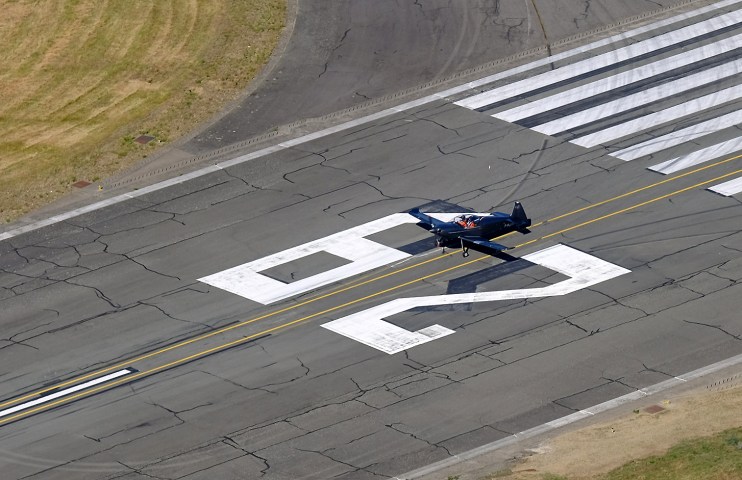Will the ‘Tesla of aviation’ convince critics net-zero flying is not just a fairytale?

Firms like Aura aero have their doubters. UK environmental NGO the Aviation Environment Fund (AEF) thinks efforts to develop green aviation and zero-carbon technologies such as sustainable aviation fuels and hydrogen or electric aircraft will not help by themselves the industry reach its net-zero target.
“Our politicians seem to be living in a fairytale world where the aviation sector quits its dependence on fossil fuels – and overcomes all the barriers that have existed so far to decarbonisation – at no cost and with no need to curb passenger growth,” the NGO’s policy director Cait Hewitt said at COP26 this week.
While Hewitt argued “no one seriously believes electric or hydrogen-powered aircraft will be flying long-haul routes”, Toulouse-based hybrid aircraft manufacturer Aura Aero might prove her wrong.
Created in 2018 by former Airbus staff, the company made a name for itself when it said it wanted to become the Tesla of aviation.
“I’m taking Tesla as a reference point because it didn’t relegate itself to some fuzzy concept, but the company worked to make [their ideas] happen,” explained the company’s chief executive Jeremy Caussade to City A.M. in the company’s Toulouse hangar.
Just like the Palo Alto company, Aura Aero is in a unique position within the aviation market.
The company planned fleet aim to wow enthusiasts as well as reduce the flight shame of business and leisure travel. The Integral family is a two-seater plane for training, leisure or even aerobatics purposes.
But more encouraging for green aviation enthusiasts, Aura Aero is developing the Electric Regional Aircraft, or ERA, a 19-seater battery-powered plane that could travel up to 200 nautical miles – enough to link London to Paris.
While ERA is expected to enter service in 2027 on short to medium routes, for the mid-term future the company is also working on electric propeller aircraft.
“If we are not looking to have intermediate solutions, we can’t go fast into the zero-emission aircraft [market],” Caussade said. “For us it’s a matter of assessing which aircraft we can put into the market as soon as possible that can signify the biggest first step towards zero emissions.”
In the last few years, the net-zero transition has become a focus for France. In April, President Macron implemented a ban on short-haul domestic flights if they could be replaced by a 2h30 train ride, echoing a similar law passed in Austria.
The measure received mixed reviews by carriers. Caussade explained that the short-haul flight ban has only acted as a warning for the aviation sector to engage more with politicians.
“Maybe we didn’t discuss enough with politicians and explained what the roadmap to decarbonisation could be,” he said.
Instead of an aviation ban, Caussade has called on all stakeholders to work on multi modality. “We need to talk about taking an aircraft and then a train, or Uber or whatever – this is what we need to work on,” he said.